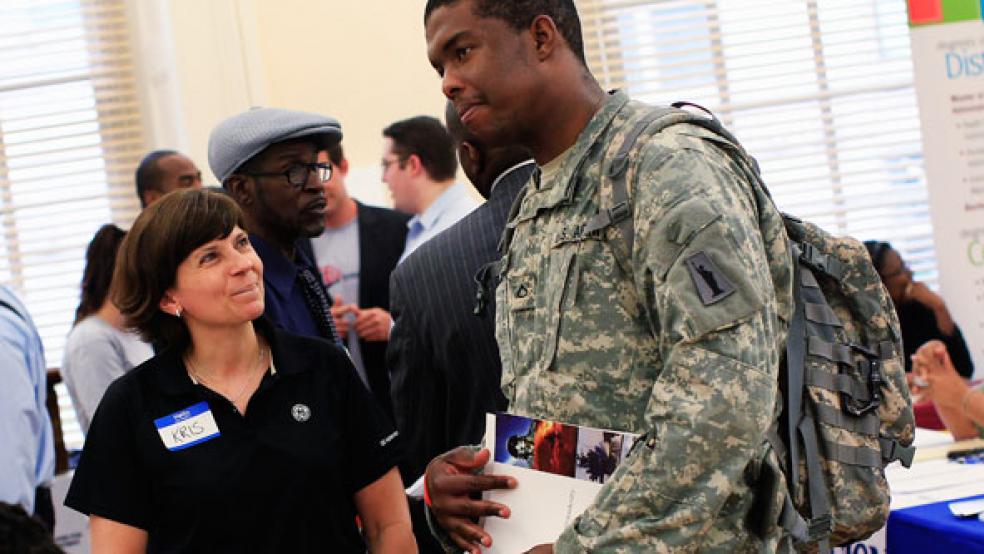Lawmakers in Washington say they want employers to hire more military veterans. One place with room for improvement is Congress itself.
A survey of members’ offices found that veterans comprise about 3 percent of the estimated 6,000 employees on Capitol Hill. That comes out to fewer than 180 vets working for almost 535 lawmakers.
“It is astonishing how few veterans work on Capitol Hill and in politics,” said Tom Manatos, founder of an Internet employment board that specializes in political jobs. “We believe it is because of the barriers of entry to those types of jobs.”
Related: Fort Hood Shootings Could Stymie Veteran Hiring
Ted Daywalt, president of VetJobs.com Inc., a site that reaches as many as 9 million of the nation’s 20-plus million vets each year, said one of those barriers is salary. “A big deterrent is what Congress pays a lot of their staffers,” he said.
Veterans in their 20s, the same age as many Capitol Hill staffers, might finish their military service earning about $50,000 a year and have a family to support, Daywalt said. That would require a pay cut of as much as a 40 percent for some entry-level positions in Congress.
The congressional survey measured the number of vets working for individual lawmakers, not as staffers on panels such as the House Veterans Affairs Committee or the Senate Armed Services Committee.
Related: Lifelong Pensions for Vets Could Be Whacked Under Pentagon Proposal
Daywalt added that there’s another factor at play: “It’s a numbers game, we just don’t have as many veterans out there as we did in the past.”
The same applies to members of Congress. The percentage of lawmakers with a military background has been shrinking every two years.
In January 2013, there were 108 vets in Congress, down from 118 two years earlier and 120 in 2009, according to a Congressional Research Service report published last month. The same study found that in 1981, veterans comprised 64 percent of Congress, which was still a decline from 73 percent in 1971. Much of that can be attributed to the shift to an all-volunteer force in 1973.
Still, with fewer and fewer members of Congress having served in the military, part of the challenge in getting vets hired is making lawmakers aware of their skills, according to Abigail Gage, a former Army captain.
Related: Sexting and Drunk Driving Lead to Job Security at VA
“You can teach a veteran how to write a memo, learn the issues and work with constituents; you cannot teach your aide the experience of combat,” said Gage, director of membership outreach for HillVets, the group that conducted the survey of lawmakers’ offices.
According to the U.S. Census Bureau, 26.7 percent of veterans 25 and older have a college degree, compared with 29.1 percent for the general population.
Overall, more veterans are finding jobs in the federal government. In fiscal 2012, vets accounted for 29.7 percent of the federal workforce, up from 25.5 percent four years earlier. Almost half of all Defense Department employees were vets, followed by 35.9 percent for the Transportation Department and 32.2 percent for the Department of Veterans Affairs, according to a report by the Office of Personnel Management.
The Department of Health and Human Services had the smallest percentage of vets on its workforce at 6.6 percent. That’s still more than double the percentage working in lawmakers’ offices.
Top Reads from The Fiscal Times:





